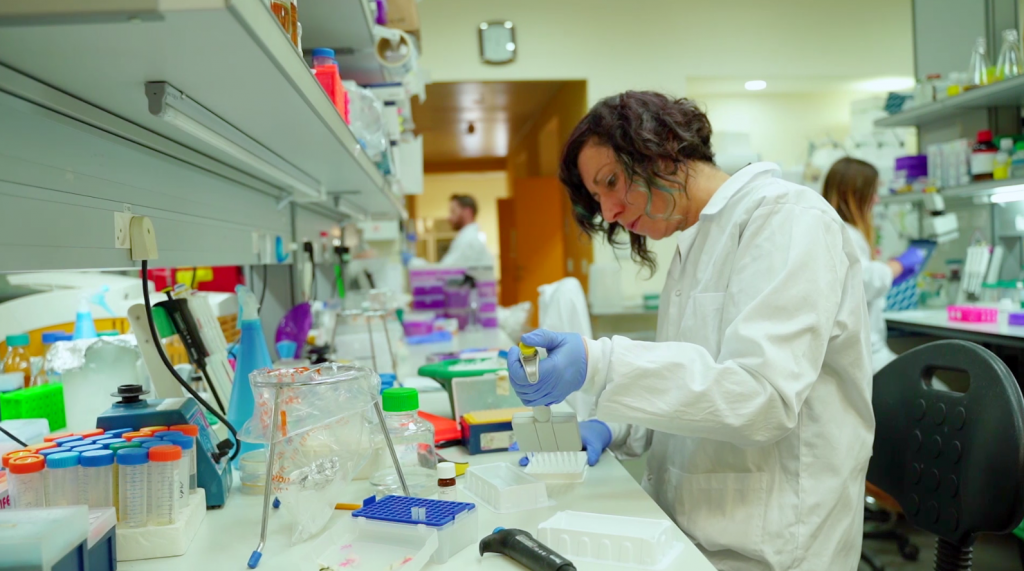A newly formed Israeli company working to develop a vaccine for the novel coronavirus based on research by scientists at the Migal Galilee Research Institute secured USD 12 million in an investment round led by Israeli crowdfunding venture investment platform OurCrowd.
The new company, MigVax, was created as an affiliate of the Migal Galilee Research Institute and will advance the effort to develop the vaccine. In early March, scientists at Migal announced that they successfully developed a vaccine for a deadly coronavirus affecting poultry and are working to adapt the vaccine for humans.
The scientists had been working for four years to develop a vaccine against IBV (infectious bronchitis virus), which affects the respiratory tract, gut, kidney, and reproductive systems of domestic fowl. The disease causes “remarkable economic losses to the poultry industry by inducing respiratory and reproductive signs, decreased productive performances, and increased mortality,” according to a 2019 veterinary study.
The effectiveness of the vaccine has been proven in pre-clinical veterinary trials, the institute said.
While working on the avian vaccine, the scientists said they identified a possible COVID-19 vaccine candidate as a by-product of the IBV vaccine and have made the “required genetic adjustments to adapt the vaccine to COVID-19, the human strain of coronavirus.” The scientists are working toward safety approvals that will allow for in-vivo testing and—in the future—the production of a vaccine.
“The experiments we have carried out so far show that because the vaccine does not include the virus itself, it will be safe to use in immune-suppressed recipients, and has fewer chances of side effects,” said David Zigdon, CEO of the Migal Galilee Research Institute. “It uses a protein vector that can form and secrete a chimeric soluble protein, which carries the viral antigen into tissue and causes the production of antibodies against the virus by the immune system.”
“We are now working to adjust our generic vaccine system to COVID-19. Using a fermentation process, MigVax aims to have the material ready for clinical trials within a few months,” he added.
OurCrowd CEO Jon Medved said: “We are humbled by the opportunity to invest in this company, which means so much to so many people. The race for a COVID-19 vaccine is about saving countless lives, and we are grateful to be able to support this important effort.”
“We feel that the vaccine has already shown high safety and efficiency in animal models and we believe the approach we are taking is safer with a higher likelihood of achieving a meaningful immune response,” said OurCrowd venture partner Morris Laster, who is leading the investment.
The novel coronavirus, known as SARS-CoV-2, likely originated in China in December 2019. The disease caused by the virus, COVID-19, has killed close to 180,000 people worldwide and over 2.5 million have been infected.
In Israel, over 14,000 people have been diagnosed with the disease and 187 people have died as of April 22.
The race to develop a coronavirus vaccine
A number of Israeli scientific teams and over 70 groups worldwide are currently working to develop a vaccine for COVID-19.
This week, an Israeli scientist was awarded a US patent for his innovative vaccine design for the corona family of viruses and has indicated that he was on track to develop a vaccine for the novel coronavirus.
Earlier this month, the Israel Institute for Biological Research reported “significant progress” toward a vaccine. A source familiar with the institute’s activities told Reuters and other media outlets that trials were already underway on rodents, without specifying which type.
Meanwhile, US company Moderna has begun clinical trials on an experimental vaccine, and California-based biotech firm Gilead Sciences is currently in a Phase III clinical trial to evaluate the safety and efficacy of its novel antiviral drug Remdesivir, developed originally for Ebola, in adults diagnosed with COVID-19. Initial results have shown promise.
These trials build on additional research including two clinical trials in China’s Hubei province led by the China-Japan Friendship Hospital, and a clinical trial in the US, led by NIAID.
